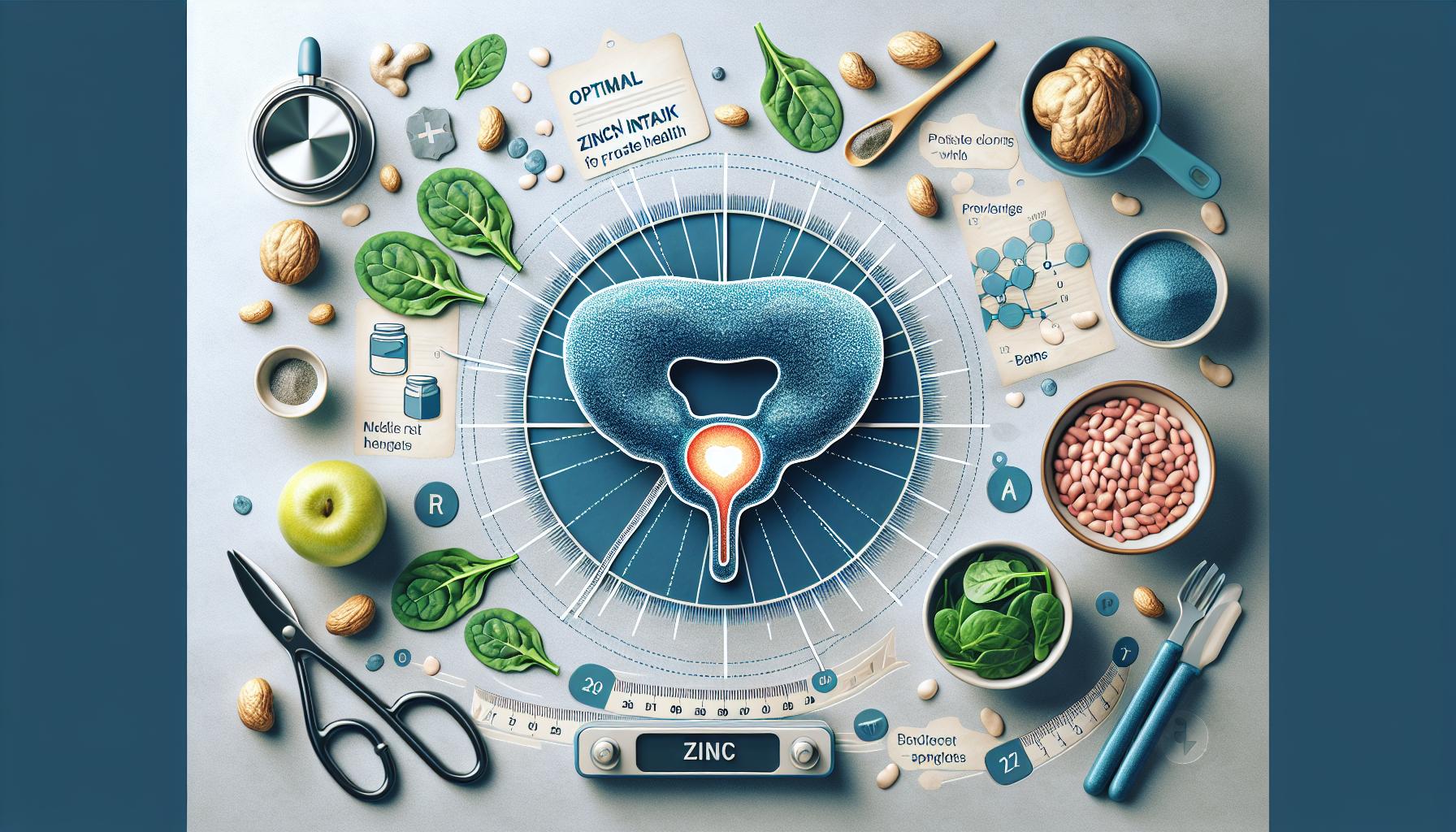Introduction
‘How much zinc can I take in a day for prostate cancer?’ seems to be the pressing question on your mind. The simplistic answer is that it entirely depends on individual health conditions and the guidelines set by your healthcare professional. However, thickening the plot, zinc supplements, although beneficial for a myriad of health concerns, can often be a slippery slope when consumed in excess. This article aims to delve deep into the vivid world of zinc and its relation to prostate health, by touching upon key factors such as daily dosage, potential side effects, and the relationship between zinc and prostate cancer.
Zinc’s Role in Body
To put it succinctly, zinc is a warrior in a wellness suit. This mighty mineral, present in cells throughout the body, aids in immune function, DNA synthesis, wound healing, and cell division. Zinc also has an impelling impact on our sense of taste and smell.
Connection to Prostate Health
Delving further into the dynamic dialectic between zinc and the prostate, zinc levels in the prostate are higher compared to any other soft tissue in the body. More importantly, some studies suggest a healthy balance of zinc could potentially reduce the risk of prostate cancer.
Recommended Dosage
Venturing into the question-“How much zinc can I take in a day for prostate cancer?” – it’s critical to note the recommended daily dosage. Adults 19 years and older usually require around 11 milligrams of zinc per day.
Excessive Intake Impacts
Just like the proverbial coin, zinc intake does have two sides to its story. While meeting the daily need for zinc is vital, venturing beyond the recommended dosage may lead to detrimental effects like nausea, vomiting, loss of appetite, stomach cramps, diarrhea, and headaches. Furthermore, long-term high dose zinc supplementation can interfere with copper absorption and potentially lead to copper deficiency.
Food Sources of Zinc
Perfecting the potion, so to speak, we can’t forget about the abundance of natural food sources rich in zinc. Meats like beef and poultry, dairy products, nuts, beans, and whole grains are just a few items that can top up your zinc levels, beyond supplements.
Living a Lifestyle Conducive to Prostate Health
Beyond zinc and diet, adapting your lifestyle to maintain optimal prostate health could be a game-changer. Building healthy habits such as regular exercise, maintaining a healthy weight, smoking cessation, and avoiding excess alcohol can play a significant role in keeping prostate issues at bay.
Conclusion
In conclusion, while zinc plays a key role in our bodies, its relationship with prostate health is contingent upon maintaining and monitoring suitable dosage levels. Remember our golden rule: before you pile those zinc supplements into your shopping cart, your first port of call should always be your healthcare professional for tailored advice.
Frequently Asked Questions
1. Can zinc help shrink an enlarged prostate?
There is currently no scientific proof that zinc alone can shrink an enlarged prostate. However, its importance in maintaining general prostate health is well-acknowledged in medical circles.
2. Is zinc deficiency a risk factor for developing prostate cancer?
While research on this matter is on-going, some studies hint at a potential correlation, suggesting that men with lower levels of zinc might have a higher risk of developing prostate cancer.
3. What are potential signs of zinc overload?
Potential signs of zinc overload include nausea, vomiting, loss of appetite, stomach cramps, diarrhea, and headaches. It is crucial to avoid excessive intake.
4. Can I get my daily dose of zinc through food?
Yes, food sources such as beef, poultry, dairy products, whole grains, and various nuts and seeds are rich in zinc.
5. Should I take zinc supplements without consulting a doctor?
While zinc supplements are generally considered safe for most adults when taken as directed, medical advice is strongly suggested to ensure safety and effectiveness, especially for those with underlying health conditions.


